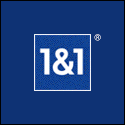Your 2024 Job Hunt Checklist and Professional Improvement
It is our pleasure, purpose, and goal to share Connection - Holistic Lifestyle - Alternative Healing Treatments - Living
Happier with New Thought - from original sources.
GlobalCnet is a collection of links to the original thought, research, new ideas and found expert advice. We have assembled extensive information and
facts to inspire YOU to further your education, skills, and desires on your specific subjects. When you click on a blue link, you arrive on a web site, do your research, and observe all the other
articles available to you. Record what you need. Share what you learned
GlobalCnet connected you, to make better-informed decisions.
This is a teaching and informative Web Site again, presenting original authors, like
Harvard University, MedNet, Unstuck.com, Readers Digest, Mental Health and documents from millions of Web Sites which were written, published and illustrated with specific content to expand
your knowledge for personal growth, health and answers. All this WWW content was meant for your reading and answers,
GlobalCnet just connected you.
It is our hope that you use all information for further answerers, ideas for more
exploration, and the wisdom to share discoveries with others. It is all about having the right fast or safe connections. Everything has already been discovered, be smart,
and use proven methods and spin your solutions to fit your needs.
Any questions, comments or to just say hello...leave a webmail .
Quick links to information and new ideas. click here.
OK...you are now on GlobalCnet. You can use the SEARCH BAR to quickly find
subject information, or you can visit all the pages. Your visit will award an organized starting point leading to answers to your challenge.......just do it. Type in a word and hit
search.
- Michael J. Malette, PhD
Founder, Global Connection Network,
Inc.
Finding a job during the COVID-19 crisis (Step-by-Step Tutorial)
Millions of people worldwide have been laid off due to the COVID-19 crisis. Nevertheless, a lot of companies are still hiring and we wanted to help all job seekers
out there to find their new dream job. ❤️
Why do you need this guide? READ ON...... Do it NOW.
Your 2024 Job Hunt Checklist
Finding a job during the COVID-19 crisis (Step-by-Step Tutorial)
1. Revamp your Resume.
Research jobs that are in demand, then play up experience you have that dovetails with those trends.
Use job-specific keywords to push your resume to the top of recruiters' search results. Stick to career highlights, but be prepared to provide details in an
interview.
It might not sound important, but pay attention to your resume's design.
Don't cram in too much -- the easier your resume is on the eyes, the more likely a recruiter will read it. [Related: 12 Steps to a Smart
Resume]
2. Join online networks, starting with LinkedIn.
Social networks are some of the first places recruiters go when they have jobs to fill, and if you're not there, they won't know about
you.
If you only have time or energy for one, start with LinkedIn.
Fill in your entire profile, but avoid over-used business phrases such as the ones on this list of top 10 buzzwords that LinkedIn released this week. Add a recent photo.
Ask previous employers or companies you've worked with as a contractor for recommendations.
List programming or other work-related skills in your profile so your name pops up in when companies use the new LinkedIn Skills search tool to find potential employees.
3. Create a business card.
Besides your name, a card should include a professional-sounding email address and phone number.
Change the outgoing voicemail message on your home phone to something appropriate for business, or list your cell number instead.
If you have a website related to your profession, but the URL on your card; otherwise, include a link to your LinkedIn profile.
When you're going to a job fair or interview, take more cards than you think you'll need so you don't run out -- or hand out virtual cards (see No. 7
below).
4. Find a job chat on Twitter.
Use these virtual conversations to find companies that are hiring or network with recruiters and fellow job seekers.
Twitter
chats happen in real-time, with members using a hashtag associated with a particular discussion to ask a question and follow what others are saying.
Job chats include #jobhuntchat (Mondays at 10 p.m. Eastern), #careerchat (Tuesdays at 1 p.m. Eastern) and #HireFriday or #HFChat (Fridays at noon
Eastern).
5. Research companies before approaching them.
Job boards have made submitting a resume so easy, employers are inundated.
If you're applying for jobs online, do your homework on a company first to make sure it's a good match.
Then, include a cover letter that reflects your knowledge of the business and why you'd make a good addition to the team.
6. Find an in.
Even in the age of social networking, the old adage that it's who you know still holds true. Once you've identified a potential employer, review your contacts
online and off for friends or acquaintances who work there or have in the past.
Ask them for advice or an introduction.
Join a LinkedIn Group for your industry or profession, and reach out to group members who might be able to introduce you to a hiring
manager.
It starts by getting off the wall and standing tall on your feet.

--------------------------------------------------------------------------------------------------------------
The New Rules for Finding Your Next Job in 2024.
Candidates have more leverage. Conversations have shifted toward flexible hours and locations. How to ace your
interview at this moment.
Rachel Feintzeig -Columnist, The Wall Street Journal

Workers are quitting in
record numbers. Salaries are up, and
flexibility is in. The rules for getting your next job have
changed.
Leverage has shifted to candidates as
employers struggle to find the talent they need, recruiters and management researchers say. Hiring processes now include more frank discussions about remote work, balancing job duties with family, and staving off burnout.
Job Hunting in the Pandemic: Don't Overshare
Yet knowing how much to share with a hiring manager remains tricky. And in an era of virtual recruiting, it’s harder to figure out what a company is really like, and whether a boss is toxic—before
you make a leap.
“It used to be when you went to interview at a company you could actually observe people at work,” says Greg Selker, a Cleveland-based recruiter. “Now you’re interviewing over Zoom.”
Here are the new rules for job-hunting now.
It’s Personal
You have kids or an elderly parent who needs help.
Should you talk about your personal situation—and talk about working an altered schedule—while interviewing?
Not at first, career experts say.
“Biases do seep in,” says Tejal Wagadia, a recruiter for a technology company who lives in Tempe, Ariz.
Disclosing personal information, she says, from whether you’re married to what you do on the weekends, could inadvertently give someone a reason to not give you a job.
“If it’s not relevant to the job you’re going to be doing, why give them additional information that could potentially negatively impact you?” Ms. Wagadia advises.
Still, Covid-19 has normalized once-unusual work arrangements and brought work structure forward in interviews, says Carol Fishman Cohen, the chief executive of iRelaunch, which helps companies
with return-to-work programs.
She says you no longer have to wait until an offer to bring up flexibility.
“Employers are not going to be surprised by it, because it’s what everyone is talking about,” she adds.
Ask questions about how the company has evolved its approach to work during the pandemic.
Based on the response, you might not have to ask for a specific accommodation to get the flexibility you need, Ms. Cohen says.
If you do have to make an ask, don’t offer up too many details of your personal situation, and do stress how you’ve been successful in your current role while tending to other parts of your life,
too.
Get Paid
Want a big raise?
Now’s your chance.
Candidates are requesting 20% to 30% more for the tech and corporate roles Ms. Wagadia recruits for, compared with what she would have offered in 2019, she says.
Ms. Wagadia says she can’t meet every request, but she doesn’t flinch when candidates throw out big numbers.
She recommends using a site like salary.com to explore the going rate for your skillset and role. Then, set a range that’s $10,000 to $15,000 lower and higher than that number.
Explain that your research indicates that that’s what the market commands for your experience.
It’s perfectly acceptable to have the salary conversation early in the interview process, Ms. Wagadia says. In fact, she prefers it.
Negotiation experts advise against being the first one to throw out a number.
Instead, ask the recruiter what their budget is for the role.
And remember that some states and cities outlaw interviewers from asking about candidates’ salary histories.
Disclosing your current pay could box you into a smaller salary bump.
Burnout Ahead
The last thing you want is to take a new job that’s worse than your old one.
No hiring manager is going to blurt out, “We’re all miserable here.” (And if they do, run.) Learn to read the clues.
First, get a sense of attrition at the company, says Jennifer
Moss, author of the book, “The Burnout Epidemic.”
A raft of departures is a red flag, both because of the factors driving staff to say goodbye and because “it’s putting a huge strain on the employees who are left behind,” Ms. Moss says.
If you feel like there is a desperation to hire you—the process is moving shockingly fast and interviewers mention that the team is currently lean—chances are you will be slammed with work as soon
as you join.
Other phrases that can indicate you’ll be picking up the team’s slack, according to Ms. Moss: “Our employees wear a lot of hats.
We like to hustle.”
Observe your interviewers closely: Do they all seem exhausted?
Does talking about their job energize them, or seem laborious?
Do they sell the company, or seem a little cynical?
“If that person isn’t excited about their work, it’s hard to think you would be,” Ms. Moss says.
How a boss approaches an interview is often how they approach managing employees, says Mr. Selker, the recruiter.
Are they giving you their full attention, or are their eyes darting to another screen?
Is it a conversation, or are they just grilling you the whole time, without opening up the opportunity for you to ask questions?
If the latter, you’re likely looking at a workplace with a top-down management style.
Vaccine Status
Every recruiter I’ve spoken with since last fall has the same view: There’s no need to put your vaccine status on your résumé. It’s entirely appropriate to ask questions if you’ll be in an office,
Mr. Selker says. Do they have a vaccine or masking policy? What protocols help to make sure folks are safe on-site?
If the recruiter says the company mandates vaccines, you can then share your vaccination status, Mr. Selker adds.
Remote Future
It’s hard to fault employers for shifting return-to-the-office plans—after all, the virus is morphing, too. But job seekers still want to know whether they’re joining a company that’s committed to flexibility for the long haul or will require them to turn up
in an office every day.
If the organization is still considering its long-term remote-work stance, leaders should be able to explain how they’re thinking it through, including which criteria would push them toward
allowing remote or hybrid work indefinitely—or not.
If executives stay tight-lipped, leaving it at “we’re remote right now,” brace for a full return, says Paul Argenti, a professor of corporate communication at Dartmouth College’s Tuck School of
Business.
“As soon as they can, they’re going to drag you back to the office,” he says.
Another hint: if the company is transitioning to hoteling, where workers reserve desks on an as-needed basis, that likely indicates more flexibility.
--------------------------------------------------------------------------------------------------------------
The Only Difference Between Successful & Unsuccessful People
A simple definition of success is truly ‘one size fits all'.
I know one undeniable fact about you. I know a fact about you that you can’t dispute no matter how hard you try.
Regardless of who you are, what you look like, where you’re from, or what you do, I’m certain about one thing. It’s because of this reason that I’m able to make a clear cut definition of who’s
successful and who isn’t.
So what am I talking about?
Ok, here’s the one thing I know about you without question.
No matter what, you will always be you.
Move to a new city? You’ll still be you. Get a new job? You’ll still be you. Find a new partner? Still you. Search for a magical life purpose (or don’t)? Still you.
Why does this matter?
I’ll explain.
The Simplest Way to Understand Success
“A man is a success if he gets up in the morning and gets to bed at night, and in between he does what he wants to do.” — Bob Dylan
You come equipped with certain tastes, talents, and predilections. Although you can increase your motivation and change your behaviors, you more or less have an innate level of natural ambition.
You have a worldview and belief systems that shape the way you view the world.
Because of all the above, you have a definition of success that makes sense to you.
If you reach and exceed it, you’re successful.
If you don’t, you’re not.
But how do you know what you really want?
How do you know which dreams are really yours?
Is there a way to figure out whether or not your definition of success is accurate so that you can reach it and be happy?
Yes and no.
You’ll never know exactly, but you kinda know. You pretty much know. And here’s what’s most important, you know enough to know when you’re selling yourself short. I’d rather you overshoot, realize
the success you achieved wasn’t quite
what you’d thought it’d be, and scale back than to never get close to your true potential.
And the most important tell of all…
When you go about your day, are you doing things you want to do or not? Even if you don’t know exactly what your dream life might look like, avoiding things you hate or don’t want to do is a much
better litmus test.
If you don’t feel like you want to be doing what you’re doing, shouldn’t that be enough of a sign? Shouldn’t that be enough motivation?
That’s no easy answer either. You have obligations, real ones, and you don’t always have time and freedom to play this little success game. You have to live your real life. I get it.
This is why I always talk about carving little bits and time to work instead of overhauling your life. You can get where you want to go in little chunks. And the “point of arrival” is different
depending on who you are.
For one person, opening up a bakery in their town fits the bill. For another, anything less than millions in the bank and an ostentatious lifestyle won’t suffice.
Some people genuinely do just want to live a simple life — have a decent job they don’t hate, have a family, and enjoy their time on the planet without getting all obsessed with this “success”
nonsense.
But how many people genuinely feel this way?
How do you feel?
Out of the entire pool of people who say they just want a simple life, a fraction of them actually means it. Maybe they don’t want world domination, but they want something more. Something
different.
Maybe you don’t want to become a master of the universe, but I’d bet you have some unrealized dreams you want to accomplish.
Is the Idea of Success Overblown?
“Life is either a daring adventure or nothing at all.” — Helen Keller
I remember overhearing a conversation my, at the time, grandmother-in-law was having on the phone. She’s in her 80’s — enough time to have decided whether or not her own life was a success.
She said something along the lines of, “Oh, well, ya’ know, I guess I’d say I had a pretty good life. I got to spend time with the people I love […].” The tone of her voice struck me. You can
almost hear the one in a phrase like “Oh, well, ya’ know,” can’t you?
Personally, I’ve never wanted to look back at my life and say, “Oh, well, ya’ know,” about anything. I want it to be more like “Holy crap I can’t believe I pulled this off.”
I want my life to be a grand adventure. And this could be my bias talking, but I’m pretty sure you do, too.
Don’t you?
What’s the truth here, really? What’s the truth for you? Honestly, I’m curious. Sometimes I do think I’m wrong about all of this. That’s why I leave it up to you.
If you were being 1,000 percent honest with yourself, how much of your own “grand adventure” have you left on the table?
Do you personally need to have one?
Think about how you’ve spent the past year, the past decade, hell, maybe the past few decades. Do you have to use rationalizations to make yourself feel good about what happened? Are you content
or are you lying to yourself?
Only you know the answer.
I understand that big dreams aren’t meant for everyone. I get that many self-improvement writers make too big a deal about living the perfect life, being rich, traveling the world, being perfectly
optimized, having maximum work and play, etc.
Your life probably isn’t bad. Most people’s lives aren’t bad.
But as much as I try to bounce back and forth between accepting other people’s choices and wishing they pushed themselves to do more, I always come back to the same feeling.
I just don’t see how living a lukewarm life makes sense in the context of only having one life.
---------------------------------------------------------------------------------------------------------
9 words you should never say in an interview
Your resume made it to the top of the
pile — and that laundry list of achievements and job titles is impressive. You’re another step closer to landing your
dream job, and now it’s time to wow your interviewer…
Make sure that the words you use are words you know and that they are used properly! Sometimes, people will use words that they think make them appear smart or
relatable, but unfortunately, they use them in the wrong context and that can sometimes be detrimental in an interview.
To stay on track and sound put together, use the STAR method before your interview
to prepare for any behavioral interview questions the hiring manager throws your way.
We spoke to executives and HR experts to get their take on the expressions they loathe hearing in an interview. Avoid these words and phrases to ensure your first
impression accurately reflects your hireability and passion for the job.
“I don’t know…”
“When asked why you want to work for a specific company, never say you don’t know!” says Stacy Caprio, Founder of Growth Marketing, “You should always have at least
one fun fact, trivia, culture comment or any comment specific to the place you are interviewing for you can cite as a reason you want to work there.” Think about it: the interviewer not only wants to
see what you would be able to do the job but also that you would be a good fit and that you want to be at that specific company, not just any old office.
“I hate…”
Hate is a strong word with a very negative connotation. By saying you hated a task, team, boss, policy or former company you run the risk of appearing hot-headed,
unprofessional and confrontational. “You can also look blameful,” says Sean Dowling, Partner and Manager of Recruiting Strategy for WinterWyman’s Technology group, “Try to find a word that’s as
powerful and always back up your statement with what you did to make the situation or experience better.”
“Oh, sh*t.”
“One of the main things to know is that swear words are, of course, not appropriate,” says Debora Rowland, VP of HR at CareerArc, “It can show a lack of respect and sensitivity to the situation.” Using slang words in
an interview can also be a negative as it is too informal and likely not appropriate.
“Did you see what Trump said today?”
In today’s political environment, it is far better to stay away from controversial topics. “Words such as Democrat, Republican, Conservative, Liberal can color an
interview unless the role being applied to is for a political group of some kind or requires specific experience in that realm,” says Rowland, “Staying away from controversial topics and subsequently
words would strongly be encouraged.”
“I’ll do anything you ask.”
While this sentence could indicate a candidate who is willing to pitch in and be a good team member, it can also be seen as someone who is desperate to become
employed, explains Andy Thiede, HR Consultant at KardasLarson, LLC. While this is a sentence to avoid in an interview, there are other ways to say it. For example, the applicant might say, “I’m known
as someone who is willing to do any task in order to get the job done.”
“How much does this job pay?”
According to Thiede, the timing is important on this one. It’s certainly acceptable to ask about compensation if the interviewer doesn’t mention it first, but it’s a
question that should not be asked in the very initial discussion.
“What are the benefits?”
Similar to the question on pay, the timing of this question is key. “Don’t ask this question in the initial interview, unless it’s very clear that the meeting is
going so well that there is indication a job offer might be tendered on the spot,” says Thiede.
“I’ve been to hell and back.”
While it goes without saying that you’re ready to move on from your current position, whether for professional or personal reasons, it’s best to remain tightlipped
about exactly why you’re leaving or talk poorly about your former employer or circumstances. “I’ll never forget those words, uttered by a candidate in an interview after she described her personal
issues as an explanation of why there was a gap in employment since her last job!” says Thiede.
“That is a great question!”
Avoid filler words. When a candidate follows up and each question you ask starts with “Great question” or “um”. Take a second to pause and think instead of filling
the silence. “You will come across more confident if you take those pauses,” explains Ben Christensen, Co-founder and Head of People and Talent at Handshake.
“I have a rare gift/quality.”
“Let your work and experience speak for itself, says Christensen. Focusing on the job and using words that relate to the role applied is a smart tactic to start. Using
some of the wording in the job description as you speak about your experience and skills — shows that you’ve paid attention
and done your research without coming off as pompous.
---------------------------------------------------------------------------------------------------------

Learning
Center
The SBA offers a variety of online courses to help you start and run your business.
-----------------------------------------------------------------
8 Resume Do's and Don'ts
Resumes typically provide the first impression of your qualifications to a prospective employer. There are several guidelines to follow when writing your resume that will make it clear, organized
and comprehensive.
In this article, we discuss what to do and what not to do on your resume to increase your chances of securing an interview.
Resume writing tips
Every resume should include your contact information, describe your professional experience, outline your education and highlight your skills. Here are some do’s and don’ts to consider when
writing your resume:
Do: List your specific experience, skills, and accomplishments that are directly or closely related to the job you’re applying for. Include previous positions that had similar or
related responsibilities or those that allowed you to practice relevant skills. If you took professional courses or earned any certifications, including those, as well as any transferable skills.
Don’t: Mention experiences not relevant to the position you are applying to. For example, you may have experience using certain scheduling software. Only list it on a resume for a
position that also uses that same software. You can consider revising the experience to be more universal, such as “Experienced in multi-calendar management using scheduling software.”
Read more: Listing Professional Experience on Your
Resume
Do: Include education relevant to the job. If the position is entry-level, use your associate’s degree or bachelor’s degree. For some entry-level positions, or if you have limited
work experience, you can also include your high school diploma or GED. You can also consider listing any related classes you took, such as industry-specific courses like marketing or finance, general
education courses like English and writing or technical courses in computer programming.
Don’t: Include your GPA. Some employers may request this information, but may just prefer to know your highest level of education is, what and where you studied and when you
completed each level of education.
Read more: How to List Education on a Resume
Do: Include personal information such as your name, phone number, email address, and for some positions, home address. Review the job listing to identify any additional personal
information to include.
Don’t: Include information irrelevant to the job search or is not specifically requested by the employer. Some positions, typically in countries other than the U.S., may request a
headshot. Family details, such as marital status and number of children are not often required, though an employer may request that information during the initial hiring process and onboarding.
Related: Should You Put Your Address on Your
Resume
4. Job listings and qualification standards
Do: Apply to jobs you are fully or closely qualified for. You can seek positions that require additional training if you’re open to learning new skills. Consider using job
descriptions like a checklist. Compare it to your qualifications and see how closely you match the job’s requirements.
Don’t: Apply for jobs you do not meet most of the requirements for. Some employers may train the right candidate and often mention that in their listing. When reviewing job
listings, confirm you have the minimum level of education, training, and skills listed.
Related: 6 Universal Rules for Resume Writing
Do: Use simple and direct statements with easy-to-understand terms when describing your experience and skills. You can try statements like, “Collaborated with a team of designers
to create targeted advertisements” or “Lead a team of finance managers to educate clients on investment strategies.” Direct statements like these define what your role was in your past job.
Don’t: Use cliches or idioms, such as phrases like “team player,” “hard worker” or “detail-oriented” unless they are keywords from the job description. Consider also avoiding too
much industry-specific language or jargon. Sometimes, the person reading your resume may be unfamiliar with certain terms if they work in human resources or are doing an initial read-through before
passing candidates to the hiring manager.
Read more: Resume Power Words
6. Applicant tracking systems.
Do: Optimize your resume’s content and structure to successfully pass through an applicant tracking system (ATS). Some companies receive large quantities of applications, so they
use an ATS to filter out unqualified candidates. This system goes through each resume and looks for relevant phrases and keywords, often those used in the job description. Resumes are then
automatically scored and the passing resumes are sent to the hiring manager to review.
When writing your resume, be sure to use similar phrases and keywords used in the job listing to ensure your qualifications properly reflect the expectations of the role you’re applying to. You
can also use simple formatting and easy-to-read structure to ensure the
ATS grades your resume on its content.
Don’t: Use a complicated template or neglect the keywords in the job description. Both steps are important in ensuring your resume has the highest chance of success.
Do: Write a concise resume that is one to two pages long. The most effective resumes are short and to the point. Hiring managers and recruiters may review hundreds of resumes for
each open position, so a short resume ensures they can read it quickly.
Don’t: Go over two pages unless specified. Some positions or industries may require a longer, more in-depth resume, but most prefer one or two pages. You may have had dozens of
previous jobs, but they might not all have applied to the job you are applying for.
Read more: Q&A: How Long Should a Resume Be?
Do: Review your resume before submitting it. Proofread your resume and use a spell checker. Consider writing your resume and going back the next day to review it again. Also, ask
a friend or colleague to read it and identify any areas for improvement.
Don’t: Rush to submit a resume that hasn’t been reviewed. Some ATSs look for grammatical and spelling errors, so be sure to complete this step to ensure the highest ATS grade.
-----------------------------------------------------------------------------------------------------------
Keep growing with expert career advice.
|
|
Whether you're writing your resume, preparing for an interview, or discussing salary, we have tips (and tricks) to help you along the way.
|
|

Pay & Salary
-------------------------------------------------------------------------------------------------------
31 Quotes to Motivate Your Job Search
For good or ill, your thoughts are powerful motivators. Thinking upbeat positive thoughts can have an inspiring effect on your job search. Likewise, a steady drumbeat of
negativity can drag you down. As a job seeker, take matters into your own hands with quotes to motivate your search and keep you powering forward.
We’ve rounded up some of the best words of motivation and inspiration for your job
search, from thought leaders like CEOs, artists, business pioneers, historical figures, athletes, writers, and military leaders.
Below, you’ll find 31 fantastic quotes—a month’s worth—that are pithy, funny, thoughtful, wry, and offer inspiration for your hunt for flexible work. Try a quote a day to keep your job search fired up and on track!
Here are 31 quotes to motivate your job search:
1. “If you fell down yesterday, stand up today.” —H.G. Wells
2. “You may encounter many defeats, but you must not be defeated. In fact, it may be necessary to encounter the defeats, so you can know who you are, what you can rise from, how you can still come
out of it.” —Maya Angelou
3. “I am convinced that most people can achieve their dreams and beyond if they have the determination to keep trying.” —Howard Schultz
4. “Many of life’s failures are people who did not realize how close they were to success when they gave up.” —Thomas Edison
5. “Courage doesn’t always roar, sometimes it’s the quiet voice at the end of the day whispering ‘I will try again tomorrow.'” —Mary Anne Radmacher
6. “Every strike brings me closer to the next home run.” —Babe Ruth
7. “A bend in the road is not the end of the road…unless you fail to make the turn.” —Helen Keller
8. “Have the courage to follow your heart and intuition, they somehow already know what you truly want to become. Everything else is secondary.” —Steve Jobs
9. “It always seems impossible until it’s done.” —Nelson Mandela
10. “It is never too late to be what you might have been.” —George Eliot
11. “Promise me you’ll always remember: You’re braver than you believe, and stronger than you seem, and smarter than you think.” —A.A. Milne (from Winnie the
Pooh)
12. “Fail often so you can succeed sooner.” —Tom Kelley
13. “Accept the challenges so that you can feel the exhilaration of victory.” —George S. Patton
14. “It isn’t the mountains ahead to climb that wear you out; it’s the pebble in your shoe.” —Muhammad Ali
15. “Success is not final, failure is not fatal: It is the courage to continue that counts.” —Winston Churchill
16. “Hope begins in the dark, the stubborn hope that if you just show up and try to do the right thing, the dawn will come. You wait and watch and work: you don’t give up.” —Anne
Lamott
17. “Do something for somebody every day for which you do not get paid.” —Albert Schweitzer
18. “The way I see it, if you want the rainbow, you gotta put up with the rain.” —Dolly Parton
19. “Start where you are. Use what you have. Do what you can.” —Arthur Ashe
20. “Twenty years from now you will be more disappointed by the things you didn’t do than by the ones you did. So throw off the bowlines. Sail away from the safe harbor. Catch the trade wind in
your sails. Explore. Dream. Discover.” —Mark Twain
21. “Remember that not getting what you want is sometimes a wonderful stroke of luck.” —Dalai Lama
22. “Even if you’re on the right track, you’ll get run over if you just sit there.” —Will Rogers
23. “It does not matter how slowly you go as long as you do not stop.” —Confucius
24. “When things go wrong, don’t go with them.” —Elvis Presley
25. “When you get into a tight place, and everything goes against you till it seems as if you couldn’t hold on a minute longer, never give up then, for that’s just the place and time that the
tide’ll turn.” —Harriet Beecher Stowe
26. “A large oak tree is just a little nut that refused to give up.” —David McGee
27. “You miss 100 percent of the shots you don’t take.” —Wayne Gretzky
28. “If opportunity doesn’t knock, build a door.” —Milton Berle
29. “I will not let anyone scare me out of my full potential.” —Nicki Minaj
30. “When you come to the end of your rope, tie a knot and hang on.” —Franklin D. Roosevelt
31. “Remember that guy that gave up? Neither does anyone else.” —Unknown











 Pay & Salary
Pay & Salary












